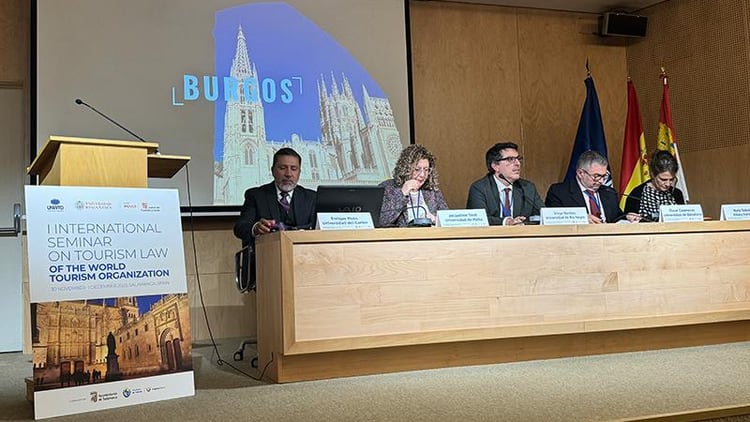The Diplomat
The first seminar on the International Code for the Protection of Tourists, held in Salamanca from 30 November to 1 December, brought together legal experts, academics and representatives of the public and private sector to address the achievements of the Code two years after its launch, and to assess the challenges ahead in the coming years.
The UNWTO considers, according to its website, that it has laid the solid foundations needed by countries around the world to provide greater legal certainty to all operators in the tourism sector. Nevertheless, it convened experts in Salamanca to analyse various aspects of the Code.
The pandemic highlighted the urgent need for a consistent legal framework for assisting tourists. Even during the biggest crisis in the history of tourism, UNWTO created the landmark legal instrument in record time, following consultation with more than 100 countries including both Member States and non-Members, and from across the private sector. Approved at the 24th UNWTO General Assembly in 2021in just two years, it has been recognized as a key means of restoring confidence in travel and interest in the Code. To date, 22 countries have agreed to adhere to it.
The inaugural legal seminar, organized by UNWTO alongside the University of Salamanca and Paris 1 Panthéon-Sorbonne University, provided a platform for to delve more deeply into the principles and recommendations for assisting international tourists.
Over two days, leading experts contributed their insights and inputs during a series of multilateral panel discussions. The panels focused on several of the key challenges, with a focus on supporting the recognition of Tourism Law as an independent branch of the legal system. Highlights included:
- A focus on Tourism Law as a branch of international law, with contributions from leading experts from United Nations Educational, Scientific and Cultural Organization (UNESCO), the International Maritime Organization (IMO), the United Nations Office of Legal Affairs, the Interamerican Development Bank and the Office of International Standards and Legal Affairs.
- The creation of a PhD programme on Tourism Law with the Universities of Salamanca and Paris 1 Panthéon-Sorbonne University, to support advanced studies and education in this specific branch of the legal system.
- As assessment of the Code’s potential role in crisis management, drawing on the lessons of the pandemic and counting on the expert insights of leading academics.
- An exploration of what the minimum standard of protection for tourists could be, as well as discussions on contractual issues relating to delivering assistance in emergency situations, and recommendations for best practice around protection of tourists in the context of digital services, emergency prevention as well as assistance and repatriation.
As well as addressing the key challenges standing in the way of Tourism Law being better defined and integrated into wider national and international legal systems, the Seminar also highlighted the opportunities available through adherence to the Code. This was backed up by presentations of case studies of best practice, including the case of Uruguay, champion of the International Code for the Protection of Tourists, and the efforts made to apply the Code at the national level through the development of specific legislation.
Expert panelists set out the case for “when crisis becomes an opportunity”, making clear that the Code can help balance responsibilities between countries, businesses and tourists themselves in emergency situations.
- Participants were presented with the work of the Tourism Law Observatory for Latin America and the Caribbean, jointly created by UNWTO and IDB, as well as from representatives of countries already adhering to the Code, including Costa Rica, Ecuador and Uruguay.
- The first Observatory on Tourism Law for Latin American and the Caribbean is a digital tool at the service of UNWTO Members that will compile all legislation affecting the tourism activity enacted by countries of the Latin America and Caribbean Region. Supported by a network of academic collaborators, the Observatory will serve as a tool for comparability, will issue recommendations and publications on Tourism Law and will support UNWTO Member States in the development of legislation affecting tourism.
